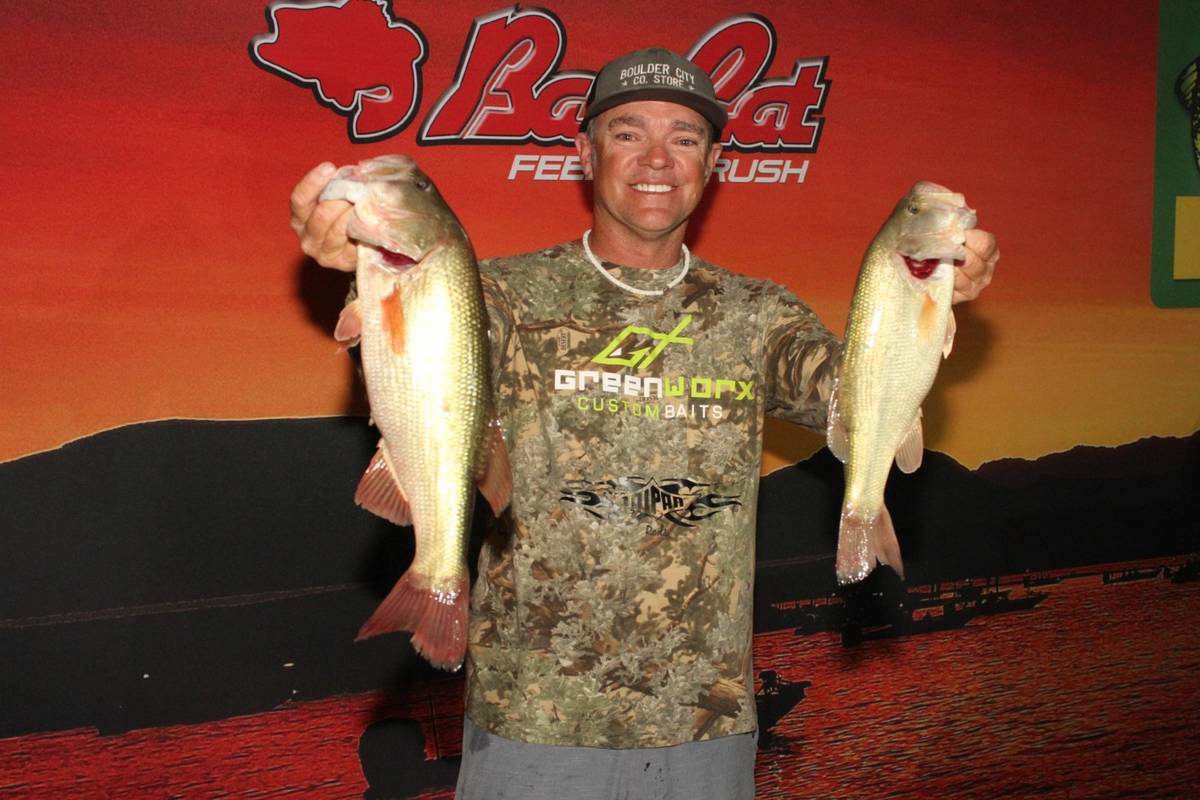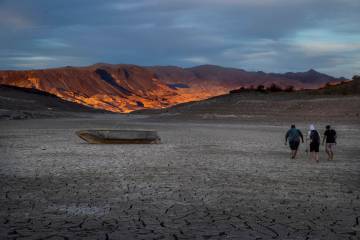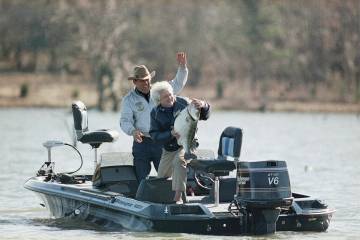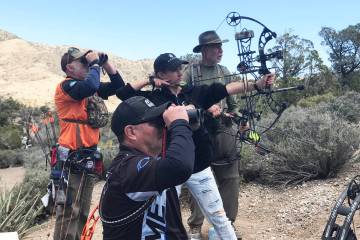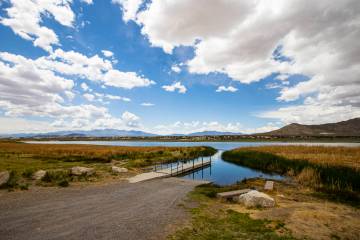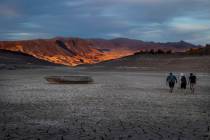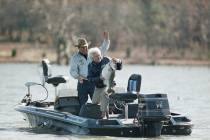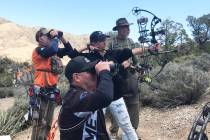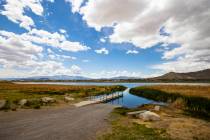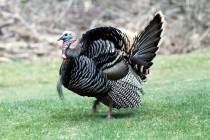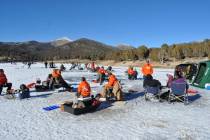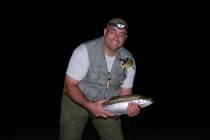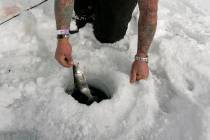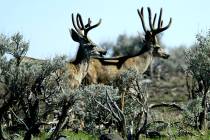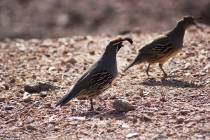Hometown favorite wins Lake Mead bass fishing event
Today, I tip my fishing hat to Tim Klinger, a soft-spoken bass fishing pro from Boulder City. With the help of a rather plump bass and a pair of double-digit five-fish bags, the hometown favorite came from behind to capture the top spot at the 2020 WON BASS U.S. Open bass tournament held Oct. 12-14 at Lake Mead.
As soon as the announcement was made, Klinger was swarmed by fans and friends, and the crowd loudly voiced its support. So much so that the announcer at the final weigh-in had to ask several times for the audience to quiet down so the emotional Klinger could share his thoughts. Even then his words were few and a simple expression of gratitude that the victory came while his dad was still here to share the experience.
I first met Klinger about 10 years ago while researching an article about bass fishing at Lake Mohave for an outdoor magazine. We spoke briefly during a tournament weigh-in at Cottonwood Cove, but I appreciated his willingness to spend a few minutes with a local outdoor writer.
Not long before, I watched Klinger for several minutes as he patiently worked a rocky point just north of the marina. Given its location, there was little doubt that other competitors had done the same thing on their way in, but Klinger remained persistent. His determination was rewarded when he reeled in a bass off the point. I could not help but wonder then just how many different baits had been pulled past that bass before it opted to swallow what Klinger was throwing. And I still do.
After his victory in the 2019 Costa FLW Series Western Division bass tournament at Lake Mead, I asked Klinger if fishing his home water gives him an advantage over competitors who come from other locations. He told me that Mead is so unpredictable it is like fishing a new body of water every day, so it is always a challenge.
After the weigh-in on Day 1 of the U.S. Open, Klinger sat in 42nd place with 7.66 pounds of fish for the day. That put him more than 5 pounds behind first-day leader Tom Nokes of Riverton, Utah, who checked in with 12.69 pounds. Klinger had some fishing to do and two days to do it.
On Day 2 the unpredictability of Lake Mead began a rewrite of the tournament script. Klinger and his co-angler showed up at the Callville Bay weigh-in with five fish that tipped the scales at 13.49 pounds, among them a round-bellied 5.06-pound fish. Their take would prove to be the heaviest one-day bag of the tournament and put Klinger in second place going into the event’s third and final day.
As the sun came up, Klinger was just 0.88 pounds behind the leader with a total weight of 21.15 pounds. In first place was Cody Steckel of Las Vegas with a two-day total of 22.03 pounds. His first two days were solid, with bags weighing in at 11.44 and 10.59 pounds. Rounding out the top three places was Roy Hawk of Lake Havasu City, Arizona, with 19.21 pounds. Between the three anglers, one fish could make the difference between taking home a new bass boat and a rather large purse or something a little less impressive.
Rather than staying in the Boulder Basin as he did to win the FLW Series Western Division tournament in 2019, Klinger turned his boat eastward and made his way to the Overton Arm, where he spent much of the day working a group of submerged trees.
When he returned to Callville Bay for the weigh-in, Klinger did so with the only double-digit limit caught on the final day. It tipped the scale at 10.92 pounds and put him in the winner’s seat with a total of 32.07 pounds, more than 3 pounds ahead of Hawk, who finished second with 29.01 pounds. Steckel held onto third place with 28.35 pounds. In all, 25 anglers finished the tournament with more than 20 pounds of fish.
In addition to having his dad around for the victory, Klinger went home with a $100,000 purse and the keys to a 2021 Bass Cat Puma FTD bass boat powered by a 250-horsepower Mercury ProXS outboard motor worth $64,000.
Freelance writer Doug Nielsen is a conservation educator for the Nevada Department of Wildlife. His “In the Outdoors” column is not affiliated with or endorsed by the NDOW. Any opinions he states in his column are his own. Find him on Facebook at @dougwritesoutdoors. He can be reached at intheoutdoorslv@gmail.com



